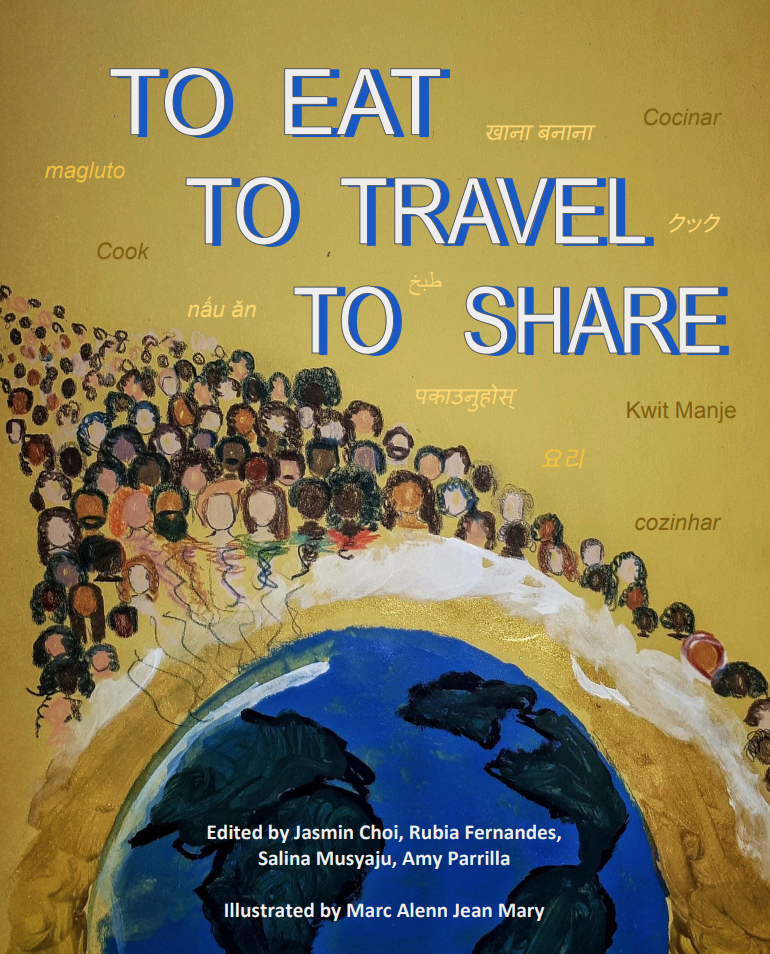An Immigrant Community Cookbook.
 For alum Jasmin Choi (SPH’19), food is a “great unifier,” allowing people from different cultures to pay homage to their home countries, share stories, and connect as a community. This celebration of cultural diversity is at the core of Choi’s recent project, To Eat, To Travel, To Share, a multicultural cookbook created in partnership with the Welcome Project, a local organization serving immigrant communities in the greater Somerville, Malden, and Medford areas around Boston.
For alum Jasmin Choi (SPH’19), food is a “great unifier,” allowing people from different cultures to pay homage to their home countries, share stories, and connect as a community. This celebration of cultural diversity is at the core of Choi’s recent project, To Eat, To Travel, To Share, a multicultural cookbook created in partnership with the Welcome Project, a local organization serving immigrant communities in the greater Somerville, Malden, and Medford areas around Boston.
As an immigrant, food has always been a way for Choi to connect with her culture. “When I came to the United States at 10 years old, food was a great comfort for me because it reminded me of home,” she says. “Helping to prepare meals was the only thing I felt I could participate in that was a tribute to my culture in a more profound way than simply speaking the language.”
With funding from Activist Bucks, a micro-grant program sponsored by the Activist Lab at the School of Public Health, Choi worked with 20 high school students who volunteer with the Welcome Project to compile the multicultural cookbook. All of the students grew up in immigrant households speaking a language other than English. The students were excited to be part of the project, Choi says, because it was an opportunity to give back to their communities while also learning more about their own cultures and the foods they had been preparing and eating their entire lives.
The students involved in the project sought out recipes from family, friends, and neighbors. Once someone started sharing a recipe with them, students were encouraged to ask more questions about it, such as, “What do you think about when you make this food?” or “What makes you want to make this food?” Answers to these questions and the many stories that followed were recorded and printed in the cookbook with the corresponding recipes. Some students even wrote original poems for the cookbook about their own thoughts and feelings while eating the foods that were shared with them.
This storytelling element was an essential part of the project for Choi and the students she worked with. “Coming from public health, I wanted to

include a storytelling piece because I knew this would be a good way to better understand different cultures and the communities we were engaging with,” Choi says. “The students also wanted to highlight individuals’ stories because many had experienced the benefits of storytelling in their communities first-hand.”
When Choi and the students began editing and putting the cookbook together, they also shared their own stories and memories related to the foods they had eaten from their own cultures and others’ cultures.
“With this project, I wanted to show that people can relate to one another on different levels of culture and that everyone has their own cultural significance,” Choi says. “I want this cookbook to be seen as a sign of respect for other cultures, as well as a symbol for the power of sharing our stories with others.”
Read more about To Eat, To Travel, To Share and the project here.
Comments & Discussion
Boston University moderates comments to facilitate an informed, substantive, civil conversation. Abusive, profane, self-promotional, misleading, incoherent or off-topic comments will be rejected. Moderators are staffed during regular business hours (EST) and can only accept comments written in English. Statistics or facts must include a citation or a link to the citation.